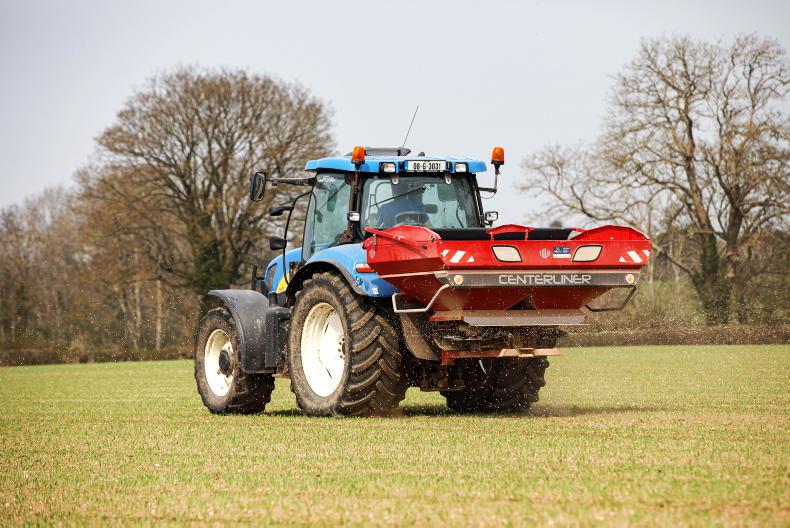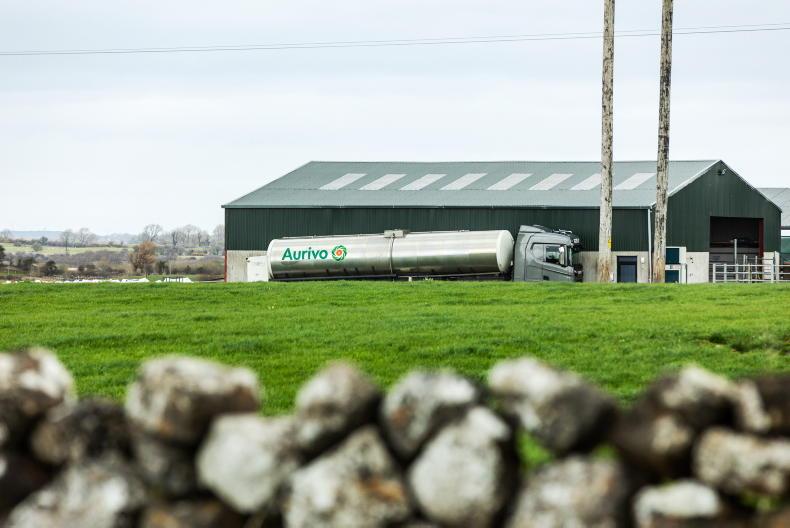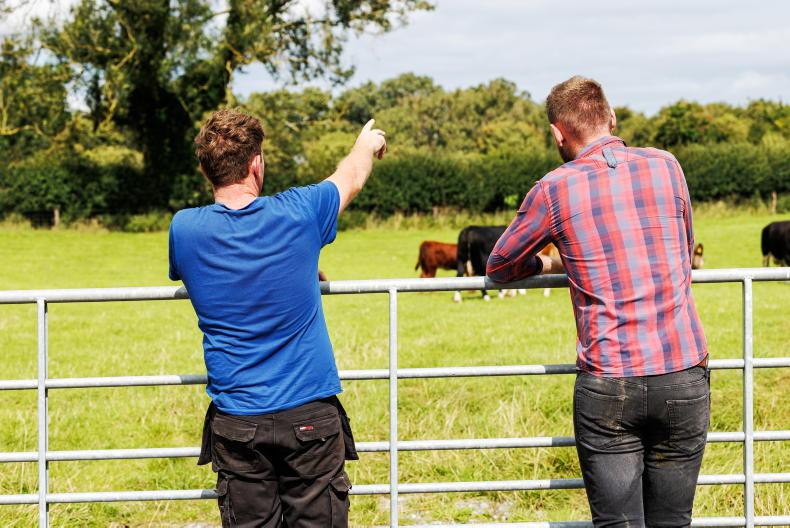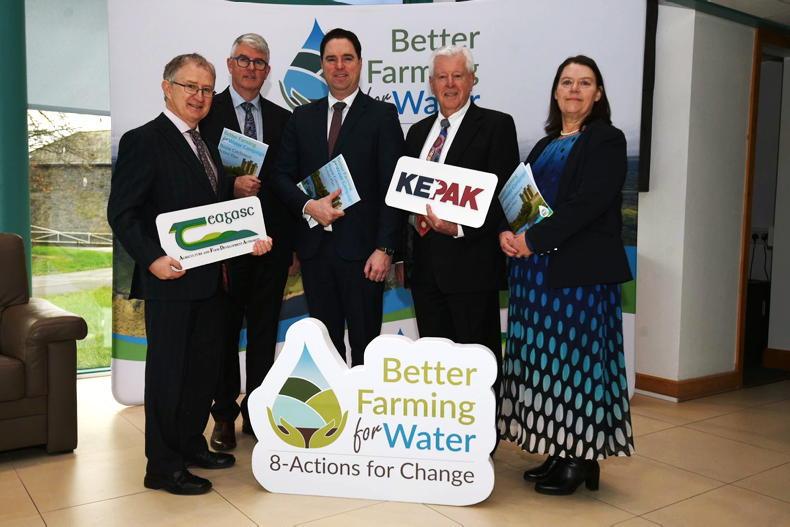Farmers are making reactionary, short-term decisions in the face of changing nitrates rules, when they should be making more balanced decisions, the 2023 Land Mobility Report has warned.
The Land Mobility Service, which facilitates land deals between landowners and would-be farmers, has recorded its highest ever number of enquiries from potential clients last year.
While the service aims to set up mutually beneficial deals between potential partners, it has noted an increase in what it calls “herd-thinking” and “reactionary short-term decision making” among farmers and others.
“The ethos of ‘Get the best price possible and to hell with the consequences’ has almost disappeared.
“However, with recent inflated demand arising from regulation changes, the short-term ethos has unfortunately resurfaced,” the report authors, Land Mobility Service chair John Buckley and Macra president John Keane say.
They say that there is “significant reactionary short-term decision-making and herd thinking among farmers, advisers and decision-makers”.
Referring specifically to the growing demand for extra land among dairy farmers to comply with changing nitrates rules, the report notes that “reflex reactions often do not deliver the best outcomes”.
It gives the example of a farmer who is told he or she is too close to their nitrates ceiling and that they need to get more land or keep fewer cows.
Reflex reaction
The reflex reaction, the report says, would be: “Rent more ground, pay too much, need more labour to manage the new land, too much grass/fodder, going backwards.”
The balanced reaction, it says, would be: “Look at my present systems, remove inefficient animals, deliver more efficient use of labour, land and infrastructure.”
Land Mobility Service: deals on 75,000ac agreed
Over 75,000 acres of land have moved into land mobility deals between landowners and would-be farmers in the last eight years.
Some 962 deals have been struck for leases, share farming, partnerships and other collaborative arrangements through the Macra-led and industry-supported Land Mobility Service.
Some 1,080 enquiries were made by landowners and land-seekers last year, the highest number ever.
Continuing the trend of previous years, land mobility deals are most common in the dairy sector and the south and southeast of the country.
The service is funded through a combination of subsidised landowner and farmer fees, industry support including co-ops and FBD Trust, and Department of Agriculture grants.
Its three facilitators were formally engaged with almost 600 potential deals last year, while 100 were formally agreed during that 12 months. The biggest cohort of farmers that the service deals with is those who have no successor, and farms that have a successor but need extra land to make the farm business viable.
Long-term leases
Over the last five years, long-term leases have accounted for the majority of arrangements, at around 40% to 45% of deals, with share farming comprising 24% to 27%, partnerships 14% to 16% and farm-to-farm arrangements at 18% to 20%.
The 2023 Land Mobility Report says that given the low supply and prohibitive price of buying land, leasing will continue to play a very important role in the agricultural land market.
Farmers are making reactionary, short-term decisions in the face of changing nitrates rules, when they should be making more balanced decisions, the 2023 Land Mobility Report has warned.
The Land Mobility Service, which facilitates land deals between landowners and would-be farmers, has recorded its highest ever number of enquiries from potential clients last year.
While the service aims to set up mutually beneficial deals between potential partners, it has noted an increase in what it calls “herd-thinking” and “reactionary short-term decision making” among farmers and others.
“The ethos of ‘Get the best price possible and to hell with the consequences’ has almost disappeared.
“However, with recent inflated demand arising from regulation changes, the short-term ethos has unfortunately resurfaced,” the report authors, Land Mobility Service chair John Buckley and Macra president John Keane say.
They say that there is “significant reactionary short-term decision-making and herd thinking among farmers, advisers and decision-makers”.
Referring specifically to the growing demand for extra land among dairy farmers to comply with changing nitrates rules, the report notes that “reflex reactions often do not deliver the best outcomes”.
It gives the example of a farmer who is told he or she is too close to their nitrates ceiling and that they need to get more land or keep fewer cows.
Reflex reaction
The reflex reaction, the report says, would be: “Rent more ground, pay too much, need more labour to manage the new land, too much grass/fodder, going backwards.”
The balanced reaction, it says, would be: “Look at my present systems, remove inefficient animals, deliver more efficient use of labour, land and infrastructure.”
Land Mobility Service: deals on 75,000ac agreed
Over 75,000 acres of land have moved into land mobility deals between landowners and would-be farmers in the last eight years.
Some 962 deals have been struck for leases, share farming, partnerships and other collaborative arrangements through the Macra-led and industry-supported Land Mobility Service.
Some 1,080 enquiries were made by landowners and land-seekers last year, the highest number ever.
Continuing the trend of previous years, land mobility deals are most common in the dairy sector and the south and southeast of the country.
The service is funded through a combination of subsidised landowner and farmer fees, industry support including co-ops and FBD Trust, and Department of Agriculture grants.
Its three facilitators were formally engaged with almost 600 potential deals last year, while 100 were formally agreed during that 12 months. The biggest cohort of farmers that the service deals with is those who have no successor, and farms that have a successor but need extra land to make the farm business viable.
Long-term leases
Over the last five years, long-term leases have accounted for the majority of arrangements, at around 40% to 45% of deals, with share farming comprising 24% to 27%, partnerships 14% to 16% and farm-to-farm arrangements at 18% to 20%.
The 2023 Land Mobility Report says that given the low supply and prohibitive price of buying land, leasing will continue to play a very important role in the agricultural land market.









SHARING OPTIONS